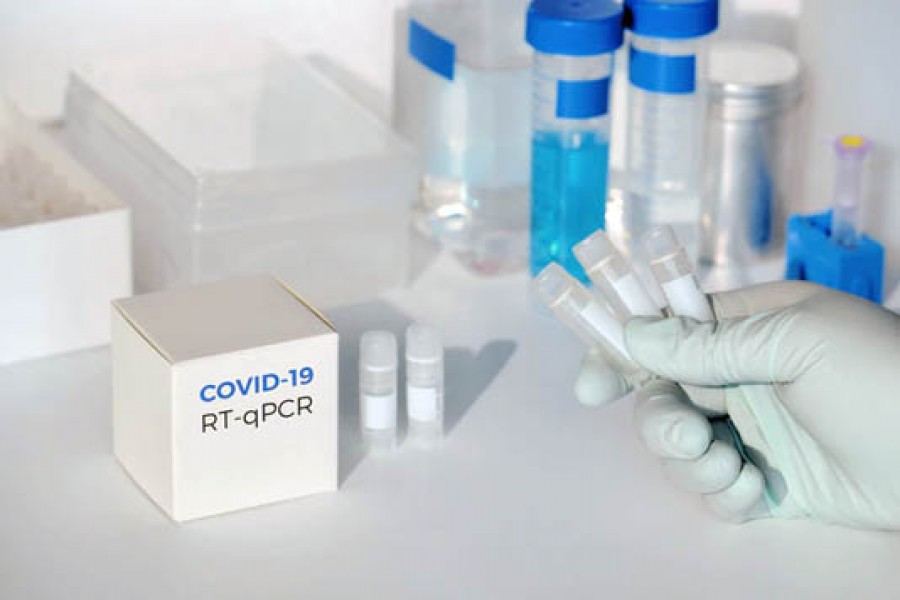Nearly four months have gone by since the detection of the first case of novel coronavirus in the country on March 08 last. Yet problems concerning the issue of covid-19 tests have not subsided.
The number of Covid tests continues to be very low. Though the number of facilities conducting tests has increased to more than 60, their actual output remains highly unsatisfactory---the total number of tests done daily is yet to cross the 20,000-mark in a country with a population of over 160 million. The test coverage now is said to be nearly 463 for every 100,000 people.
Health safety measures such as social distancing, frequent hand washing and wearing of masks are important to stave off infection, but testing is also equally important when social transmission of this deadly virus is widespread.
Though the highly contagious disease has reached every corner of the country, the testing facilities have not. Dhaka, the capital city, obviously has the maximum number of testing laboratories, but most administrative divisions do not have more than one testing lab each.
People seeking to be tested have to endure immense sufferings. The newspapers and private TV channels ran stories on the issue, but those could hardly present the actual situation. Sick and elderly people are truly unable to bear with the sufferings. They have to wait in long queues for hours together in hot and humid weather conditions. Some of them often faint and collapse on the streets.
Many people fail to give samples even after waiting in queues for a couple of days as hospitals do collect a fixed number of samples, mostly around 40 to 50, per day.
What is more troubling is that it takes nearly a week's time to get test results. There are scores of incidents in which many patients with Covid-symptoms have expired before knowing the results of tests.
It has also become imperative for people suffering from other diseases to do Covid tests since hospitals and clinics have been asking them to produce test certificates to the effect that they are contagion-free.
In such a situation, the government introduced fees for Covid tests in government hospitals at a rate of Tk 200 per patient. The fee has been fixed at Tk 500 for collection of samples from home.
However, the relevant government notification said the poor and freedom fighters will not be charged any fees for tests. How will people collecting fees at hospitals know who is poor and who is not? A freedom fighter, if needed, might produce his/her certificate. But what is about a patient who is poor?
In fact, the charging of fees for Covid tests by the government goes against its own earlier stance. The incumbent director general of health had announced in late April that Covid-tests would be free for all. Even the private laboratories provided with the PCR test facilities by the government were not supposed to collect any fees from patients.
Now, the private hospitals doing Covid tests are charging between Tk 3,500 and Tk 4,000 for a test.
The government's logic behind charging fees is that a section of people even without Covid symptoms have been crowding the test facilities and fees would deter them from doing so. But, such a logic does not hold water as the governments world over have been trying to expand their test coverage as fast as possible in line with the advice from the World Health Organisation (WHO).
However, it is not just with Covid tests, we have been avoiding, deliberately or otherwise, many actions that the situation demands. Rather, in some cases, things have been moving in the opposite direction, leading to an unabated spike in the number of infections.


